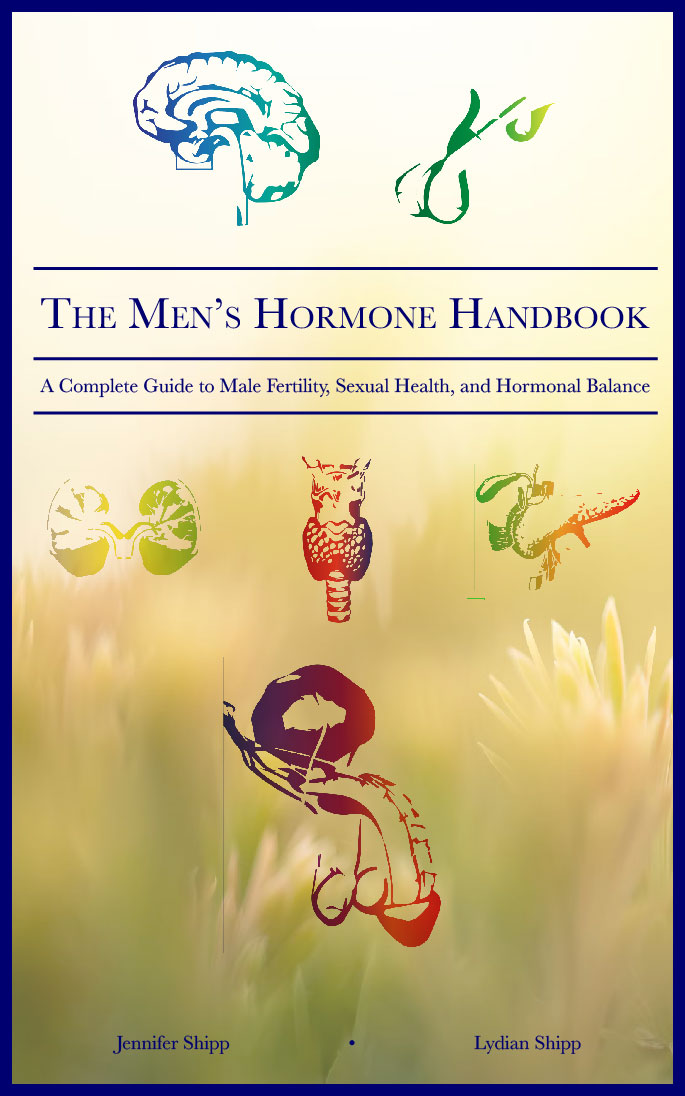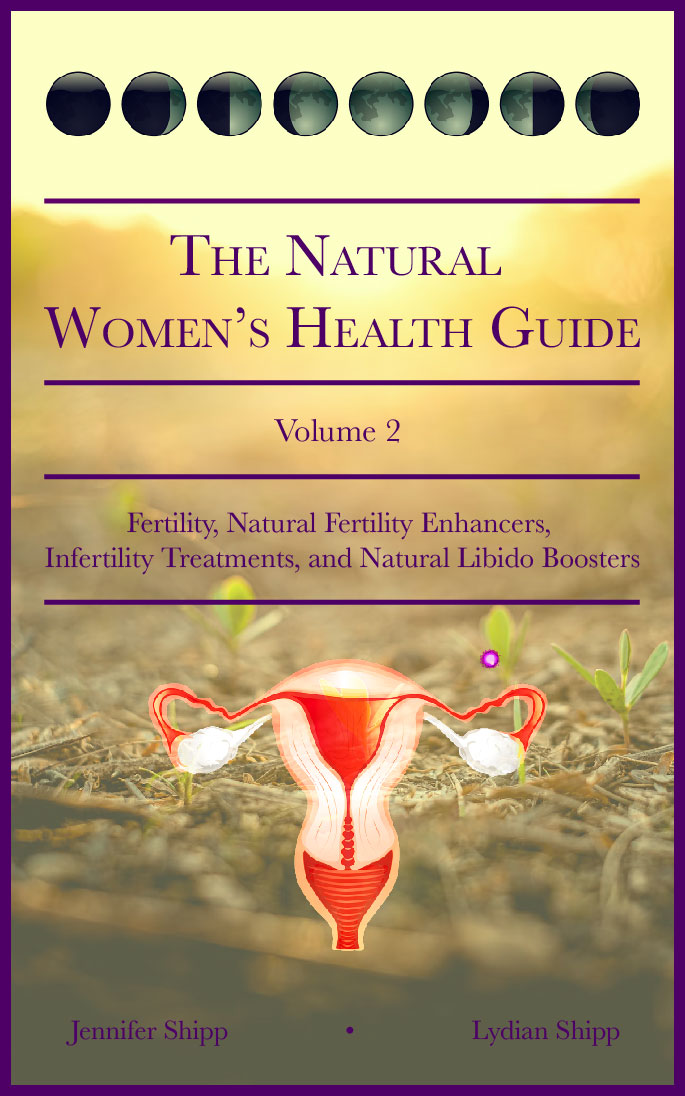L-Carnitine: An Amino Acid Supplement to Enhance Fertility
 L-Carnitine plays an essential role in both male infertility and female infertility. Having low levels of L-Carnitine can lead to physiological changes in the body that can ultimately cause or exacerbate certain hormonal problems. Both eggs and sperm benefit from having high enough levels of L-Carnitine, but uterine tissues also need plenty of this nutrient to stay healthy. If you’re vegan or vegetarian, or if you eat very few high-quality animal products in your diet, you might be at risk for developing an L-Carnitine deficiency that can ultimately lead to infertility, but even if you aren’t vegan or vegetarian, you might benefit from taking L-Carnitine for infertility. Any diet that’s less than perfect, might make you low on this essential nutrient.
L-Carnitine plays an essential role in both male infertility and female infertility. Having low levels of L-Carnitine can lead to physiological changes in the body that can ultimately cause or exacerbate certain hormonal problems. Both eggs and sperm benefit from having high enough levels of L-Carnitine, but uterine tissues also need plenty of this nutrient to stay healthy. If you’re vegan or vegetarian, or if you eat very few high-quality animal products in your diet, you might be at risk for developing an L-Carnitine deficiency that can ultimately lead to infertility, but even if you aren’t vegan or vegetarian, you might benefit from taking L-Carnitine for infertility. Any diet that’s less than perfect, might make you low on this essential nutrient.
Vegan or Vegetarian Fertility Issues
L-Carnitine is one of several deficiencies that both men and women can develop as a result of a vegan or vegetarian diet. Normally, L-Carnitine is produced in the liver and kidneys via methylation of L-Lysine. L-Lysine is one of 9 essential amino acids that humans have to consume in their diet in order to be healthy. Though L-Lysine is nutritionally available through certain plant sources like split peas, lentils, kidney beans, chickpea, or navy beans, it is available in smaller quantities than in meat and animal products like eggs and milk. If you’re deficient in L-Lysine, your body won’t be able to produce adequate amounts of L-Carnitine.Fertility problems are then a natural effect of not having the necessary nutrients to support pregnancy and reproduction. Under normal conditions, L-Carnitine is stored in the liver, heart, brain, and testis (which hints at the importance of this nutrient for male fertility). So if you eat meat or animal products once a week, L-Carnitine will be stored in your body and the various organs will release it on an as-needed basis so it can be still available on the other days of the week.
The richest dietary source of L-Carnitine is red meat, but eggs, chicken, and fish also contain higher levels of this nutrient. If you think you might be experiencing infertility issues because you’re low on L-Carnitine, the easiest way to increase levels of this vitamin is to take a high-quality supplement.
L-Carnitine for Infertility in Women
Though infertility in women often appears to be impossibly complex, there are some simple and elegant treatment methods that can have a significantly positive impact on a woman’s ability to conceive. L-Carnitine and Acetyl-L-Carnitine are two antioxidants that have been studied in depth by scientists for their ability to boost conception rates in women. Your fertility doctor tell you that you need in vitro fertilization and that taking L-Carnitine isn’t enough, but some women can conceive with only L-Carnitine supplementation. Depending on your situation, you might consider taking supplements first for a few months before undergoing the rigors of IVF. Below we offer some suggestions regarding other supplements that might boost your conception efforts in addition to taking L-Carnitine.You’re probably familiar with the word “antioxidant”. You’ve probably seen it written on bottles of vitamin C or Coenzyme Q10 at the grocery store. And this passing familiarity with the word “antioxidant” in casual advertising without your doctor’s blessing telling you that yes, antioxidants can have an important and pronounced impact on your ability to bear children, may lead you to diminish their importance. As you read this article about L-Carnitine and fertility, you might feel tempted to blow off the research or click over to some other, more complex, and expensive treatment because you’ve been taught, in a sense, to believe that antioxidants do practically nothing.
I have to be honest, dear reader, not 10 years ago, I would’ve said that antioxidants and what they claim to do in terms of fertility is nothing but fruit loops and windchimes. But that was before my husband got melanoma at the young age of 42. Neither he nor I wanted for him to go through chemotherapy or radiation. Luckily, my daughter and I were writing a book about no-chemo, no-radiation cancer treatments that we’d learned about through travels through over 40 third world countries over the course of 12 years to find indigenous healers and alternative treatment methods for a variety of health problems. This was lucky indeed. We used baking soda, apricot kernel oil, and DMSO (dimethylsulfoxide) to cure his cancer. The cancer cure book (a reference manual of cancer cures) became more important to me through that experience. And you might now be wondering what my husband’s cancer has to do with infertility in women…
My daughter and I learned as we cataloged each cancer cure day-by-day, that scientists had long-ago identified the fact that cancer cells behave a lot like embryonic cells. This theory, which looks at cancer as similar to pregnancy, is called The Trophoblast Theory of Cancer and it’s been around for a long time. You don’t know about it because the AMA and the FDA covered it up. A simple cure for cancer would destroy a booming industry. This trophoblast theory of cancer and cancer cures that work through the mechanism described by this theory are specifically contraindicated in women who are pregnant or who are trying to conceive because most cancer cells and trophoblastic embryonic cells behave almost exactly the same physiologically.
But simple cures sometimes require a lot of exploration to find and identify. What cures one person’s cancer may not cure another person’s cancer. Exploration, open-mindedness, and healing often go together. You have to be able to believe in the cure. Patients have to “on-board” their minds and their emotions into the process of being cured of a problem that’s taken root in their souls. So I invite you to look more closely at L-Carnitine and some other nutrients before giving up or giving in to conventional fertility treatments that maybe feel wrong or bad for you.
And now let me tell you that even in conventional medicine (the medical model that consists of the FDA, Big Pharma, pharmaceutical companies, and doctors at the bottom of that distribution network), there’s an entire system and model devoted to nothing but the role of oxygen in the body. This system of medicine, which is a real thing that anyone can easily research at the time of this writing (until Big Pharma realizes they need to cover this information up and call it something new to make it un-Google-able) is called Reactive Oxygen Species Biology and Medicine or ROS Biology and Medicine.
This system of conventional medicine basically consists of an examination of oxidants and antioxidants and how oxygen or substances that combine with oxygen can be used to treat and cure disease. The reason why this system of medicine is not widely known is because it tends to be curative and it has an extremely broad spectrum of action. ROS Biology/Medicine involves the use of oxygen, and antioxidants which are both very affordable and widely available. In other words, it is NOT a super-profitable way to treat patients. Big Pharma hasn’t figured out how to make a lot of money off of ROS Medicine yet, so they don’t spend any money letting patients know about it.
But if you’re looking for a cure for infertility, antioxidants are a good place to start. Maybe you take a daily vitamin C pill that amounts to 500-1000 mg per day. Good for you. But ntioxidant therapies like oral vitamin C have to be amped up a bit to really show results. In other words, you may need to take a high dose more like 6000 mg of vitamin C per day to really see some results in terms of fertility. Take those 6000 mg in divided doses throughout the day to get the best results. Taking more than 6000 mg of vitamin C by mouth probably won’t do you much good because the digestive system can’t absorb a dose higher than 6000 mg. But you could seek out intravenous vitamin C treatment in much higher doses than 6000 mg along with other intravenous antioxidants like glutathione, for example (available at walk-in boutique intravenous medicine clinics in bigger cities---some even make at-home visits). Intravenous therapies like a Myer’s Cocktail certainly won’t hurt you in your efforts at conception and in fact, they might be the magic formula that kick-starts your personal physiology and readies your body to carry a baby through a healthy pregnancy from start to finish.
But I digress…
This article is about L-Carnitine and why, as a woman, you should pay attention to it, especially if you’re trying to boost fertility levels.

L-Carnitine Fertility Basics
L-Carnitine is an antioxidant. It comes in two forms: L-Carnitine and Acetyl-L-Carnitine. Both have value for the female reproductive system. When you take a high enough dose (but not too high---I’ll talk about dosing in a few paragraphs), L-Carnitine (or its acetylated form, Acetyl-L-Carnitine) go to work clearing pollutants out of the body and the uterus. These two substances, L-Carnitine and Acetyl-L-Carnitine, which are regarded by scientists as “quasi-vitamins”, regulate the metabolic status of the reproductive system. They help women maintain hormonal balance while reducing cellular stress, which is important if you consider how cellular stressors can make all those ripe ovum stressed out and lethargic.Studies have shown that β-oxidation in oocytes is reduced when women take L-Carnitine and Acetyl-L-Carnitine. That’s a good thing. Reducing oxidation is like having a personal chauffeur and escort to drive your mother-in-law around town when she comes to visit. It reduces stress on your body and on your future babies. All those little ovum that are waiting in line for their opportunity to turn into a human being are gently protected by L-Carnitine and Acetyl-L-Carnitine. Their DNA is protected by these substances as well as their cell membranes which can become unstable, leaving their vital contents exposed, when certain pollutants are present in the body.
L-Carnitine has the ability to energize the ova and the cells in the uterus. Acetyl-L-Carnitine, on the other hand, has more powerful antioxidant properties. Acetyl-L-Carnitine also has the ability to regulate the GABA system in the body, which has an impact on our ability to chill and relax (important for conception). It also performs work in the hypothalamus area of the brain, which governs reproductive functioning. These two substances produce few, if any side effects, they’re very safe and they’re particularly useful for boosting fertility in both men and women.
L-Carnitine for Polycystic Ovarian Syndrome and More
Scientific studies on fertility and L-Carnitine have shown that supplementation with this quasi-vitamin can lead to improvement in several female reproductive disorders:- Polycystic Ovarian Syndrome (PCOS)
- Endometriosis (research on L-Carnitine has been more conflicted in terms of endometriosis, but I’d like to refer the reader to Chlorine Dioxide as a possible cure for endometriosis. Chlorine Dioxide (CDS) is an Oxidant Therapy, the opposite of an antioxidant and this type of therapy would be done for 1-2 months prior to trying to conceive. As a natural endometriosis treatment, consider doing a CDS douche combined with DMSO.)
- Amenorrhea (lack of monthly periods)
- Low sex hormone levels
- Low libido
NOTE: Some researchers have noted that endometriosis and cancer have certain features in common (both involve an uncontrolled growth of cells in areas where they don’t belong). Women with endometriosis might benefit from doing no-chemo, no-radiation, at-home cancer treatments prior to trying to conceive as many of these at-home cancer treatments work through the Trophoblast Theory of Cancer and are therefore anti-conceptive. However, after you finish with these treatments, and ideally get control over your endometriosis, or cure it entirely, your fertility levels should be higher as well as your ability to carry a healthy baby to term.
L-Carnitine Dosage for Female Infertility
A nutrient like L-Carnitine must be taken at the appropriate dose to work properly in the body. If you take too little, you probably won’t notice any effects. Mega-dosing isn’t recommended either for obvious reasons: all substances become toxic above a certain dose. So L-Carnitine and Acetyl-L.Carnitine must be taken at the proper dose for a long enough period of time for the body to make repairs and changes. So if you take Acetyl-L-Carnitine and/or L-Carnitine for infertility, be sure you take enough of it daily for a long enough period of time to ensure that it has time to work.The recommended dosage of L-Carnitine for female infertility is 3000-6000 mg orally taken in divided doses as 1500 mg every 6-12 hours. Take 1000-2000 mg of Acetyl-L-Carnitine in divided doses at 500 mg every 6-12 hours. Give this treatment regimen at least 6 months to work. Consider adding other antioxidant therapies into your daily regimen including:
- NAC
- Vitamin C
- Vitamin E
- Coenzyme Q10
- B Complex vitamins that are high in Folic Acid
- Selenium
- Zinc
L-Carnitine for Infertility in Men
The value of L-Carnitine for male infertility is well-documented scientifically. Studies have shown that low levels of L-Carnitine in semen is correlated with low sperm concentration, poor sperm motility, and low sperm vitality. On the other hand, having the proper levels of L-Carnitine in the body can promote high sperm count, healthy sperm motility, and energetic sperm overall.Scientists have tried to determine the exact mechanism of action behind how L-Carnitine affects fertility in men. A number of researchers have noted that antioxidants like vitamin E, vitamin C, N-Acetyl-Cysteine, Coenzyme Q10, Selenium, Zinc, Folic Acid, and Lycopene tend to have a positive effect on male fertility. L-Carnitine appears to work through several mechanisms, but its antioxidant power is one of the most obvious mechanisms of action that improve the quality, quantity, and energy levels of sperm.
Studies are still being conducted to better understand this nutrient, but researchers have noted that the creation of sperm in the body (spermatogenesis) can be negatively impacted by infection, severe illness, or any chronic inflammatory disease. In scientific studies, L-Carnitine was able to protect sperm from the ravages of disease or poor diet by acting as an anti-inflammatory agent and as an antioxidant.
L-Carnitine Dosage for Male Infertility
L-Carnitine and Acetyl-L-Carnitine are both found in high concentrations in the epididymis, a gland located in the testicles that contributes important constituents to male semen. L-Carnitine promotes not only sperm growth, but also metabolism and sperm energy levels when men take a supplement of at least 3 grams (3,000 mg) per day.L-Carnitine supplements are available in two forms: L-Carnitine (levocarnitine) or Acetyl-L-Carnitine. Some fertility specialists recommend taking both L-Carnitine and Acetyl-L-Carnitine along with other antioxidants like vitamin E, vitamin C, Coenzyme Q10, N-Acetyl-Cysteine (NAC), Selenium, Zinc, Folic Acid (in a B Complex vitamin), and Lycopene, but Acetyl-L-Carnitine has demonstrated a slightly higher level of effectiveness as a natural treatment for infertility.

 The Natural Women's Health Guide, Volume 2 - Fertility, Natural Fertility Enhancers, Infertility Treatments, and Natural Libido Boosters - BUY HERE!
The Natural Women's Health Guide, Volume 2 - Fertility, Natural Fertility Enhancers, Infertility Treatments, and Natural Libido Boosters - BUY HERE!
Agarwal, A., Sengupta, P., Durirajanayagam, D. (2018). The role of L-Carnitine in Female Infertility. Retrieved April 23, 2021 from https://www.ncbi.nlm.nih.gov/pmc/articles/PMC5785901/
Ahmed, S. D. H., Karira, K. A., & Jagdesh, S. A. (2011). Role of L-Carnitine in Male Infertility. Retrieved April 23, 2021 from https://pubmed.ncbi.nlm.nih.gov/22355991/
Li, K., Huang, Y. F., Shang, X. J. (2007). Level of free L-Carnitine in human seminal plasma and its correlation with semen quality. Retrieved April 23, 2021 from https://pubmed.ncbi.nlm.nih.gov/17345771/
Tang, L. F. et al. (2008). Seminal plasma levocarnitine significantly correlated with semen quality. Retrieved April 23, 2021 from https://pubmed.ncbi.nlm.nih.gov/18817342/
Abd-Allah, A. R. A. et al. (2009). Pro-inflammatory and oxidative stress pathways which compromise sperm motility and survival may be altered by L-carnitine. Retrieved April 26, 2021 from https://pubmed.ncbi.nlm.nih.gov/20357928/
Majzoub, A., Agarwal, A. (2018). Systematic review of antioxidant types and doses in male infertility: Benefits on semen parameters, advanced sperm function, assisted reproduction and live-birth rate. Retrieved April 23, 2021 from https://pubmed.ncbi.nlm.nih.gov/29713542/
Agarwal, A., Said, T. M. (2004). Carnitines and male infertility. Retrieved April 23, 2021 from https://www.rbmojournal.com/article/S1472-6483(10)60920-0/fulltext
Agarwal, A., Sengupta, P., Durairajanayagam, D. (2018). Role of L-Carnitine in female infertility. Retrieved April 23, 2021 from https://www.ncbi.nlm.nih.gov/pmc/articles/PMC5785901/#:~:text=While%20both%20LC%20and%20ALC,for%20women%20facing%20infertility%20disorders
Li, R., Jia, Z., Thrush, M. A. (2018). Defining ROS in Biology and Medicine. Retrieved April 23, 2021 fr4om https://www.ncbi.nlm.nih.gov/pmc/articles/PMC5921829/
Wikipedia (2021). Lysine. Retrieved April 26, 2021 from https://en.wikipedia.org/wiki/Lysine#Dietary_sources


























